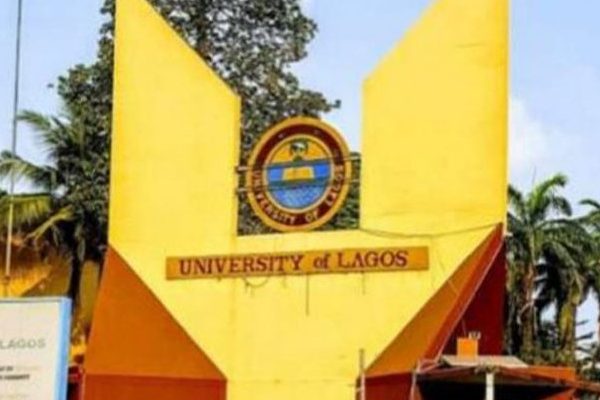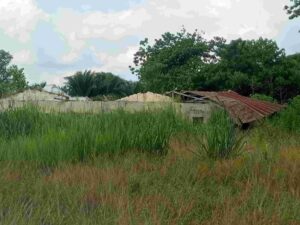In the vibrant halls of the University of Lagos are dedicated scholars with degrees earned through years of toil and dedication. They stand as beacons of knowledge, shaping young minds with wisdom and experiences. Yet, amidst the noble pursuit of lecturing, their passion is challenged by poorly implemented government policies, particularly the removal of fuel subsidies, which now hinders their ability to continue their cherished roles as lecturers. Despite the obstacles imposed by external forces, their commitment to their students remains unwavering, a testament to the resilience and dedication that define their journey in academia.
Fuel subsidy is a financial assistance provided by the government to reduce the cost of fuel for consumers. On May 29, 2023, during his inauguration, President Bola Ahmed Tinubu announced the immediate removal of the fuel subsidy, bringing to an abrupt end over 30 years of the controversial scheme in Nigeria. The price of fuel, also known as the premium motor spirit, immediately increased from N185 to N650 per litre.
The harsh effect of this policy is felt all over Nigeria till today. Due to the peculiar nature of Lagos, that is why it is one of the cities that the effect is most felt.

One of the major implemented policies since the removal of the fuel subsidy in Nigeria is the N5 billion palliative for all the 36 states of the federation and the Federal Capital Territory. The palliative was divided into two phases: food distribution and Conditional Cash Transfer for the poor and vulnerable households in the country. Also, the Federal Government began a N35,000 monthly boost to all civil savants for a duration of six months. That is from October 2023 to March 2024.
In Lagos State, the state government, led by Governor Babajide Sanwo-Olu, introduced some policies to further cushion the effect of the removal. Policies like the 50 percent subsidy on transportation that began in August 2023 and lasted till November of the same year, three days a week physical presence in the office for civil servants, and 20 percent increase in salary for all state workers.
The University of Lagos, led by Professor Folasade Ogunsola, the 13th Vice Chancellor, had since introduced some policies as well to help the members of the university community navigate this phase of economic hardship caused by the immediate removal of the fuel subsidy by President Tinubu and liberalisation of the foreign exchange rate. These policies by the UNILAG management ranged from the subsidy on local transportation, through the partnership with the Lagos Metropolitan Area Transport Authority and reduction in the working days for teaching staff.
The intention of all these policies by the UNILAG management is to reduce the hardship on staff. However, all the policies seem to have little or no effect on UNILAG lecturers.
Why? The peculiar nature of Lagos, a cosmopolitan city characterised by high cost of living, particularly accommodation, transportion, various community/government levies such as security for private street/estate security arrangement and waste disposal as led by the Lagos State Waste Management Agency.
Every working day comes with its own reason to question all the initiatives put out by all tiers of leadership. A lecturer who spends N15,000 to N25 000 every week on fuel for his car before the removal of the subsidy, now spends an average of N40,000 to N100,000 for the same reason, depending on the distance. Some lecturers have even abandoned their cars and now use the Lagos yellow public transport buses, popularly called Danfo. This new practice comes with a lot of disadvantages.
Imagine a lecturer who has a 8am class on a Monday and wakes up at 6am to prepare, then sets out for the office at 6:40am and targets getting to the office at 7:30am in order to relax for 30 minutes before the start of the day’s task, but was delayed for more than one hour due to the decision to use Danfo instead of a personal vehicle. This would result in the lecturer appearing for the morning lecture late and tired, not discounting looking rough and even sweating in some cases because of the decrepit state of the Danfo.
This daily practice, by some lecturers, because of the abrupt removal of the fuel subsidy, should be looked into by both the Federal Government and the university authorities, it has been argued so that the future leaders of the country will have some of the best intellectual and experienced minds to lecture them. Also, those saddled with the responsibility of nurturing young minds in the University of Lagos should be treated with care, respect and love so that they can carry out their duties in very good mental and physical conditions, those who spoke with The Eagle Online Correspondent said.
According to some lecturers interviewed, cutting across different disciplines in the University of Lagos, some of the major issues and challenges faced since the removal of the subsidy on petrol include: transportation, cost of living, and poor and stagnant salary structure.
On the issue of transportation, Dr. Charles Onwunali, a Senior Lecturer in the Department of Mass Communication, said he cannot use his car anymore because his little income cannot afford petrol any longer. Onwunali added that despite owning two cars, he now takes public transportation to get to work every day.
In the same vein, Ebenezer Isola, an Assistant Lecturer in the Department of Political Science, said his means of transportation has not changed since the removal of fuel subsidy. However, if he has to go out, he has to think twice. Also, if he is going for a short distant journey, he uses public transport.
Dr. Mogbademu Adesomi, an Associate Professor of Mathematics and also the Deputy Dean of Student Affairs in the University of Lagos, said that fueling of his car has not been easy since the removal of the subsidy as he now spends N10,000 daily to fuel his car. Adesomi said it feels like he spends his entire salary on fuel alone. He also said that because of his position as the Deputy Dean of Student Affairs of the University, he needs to be on ground at all times in other to assist the Dean in his duties.
Looking at the cost of living, Dr. Onwunali said every lecturer has been affected by the fuel subsidy removal, just like other citizens of Nigeria. He said: “The increase in cost of petroleum products have affected the economy negatively.”
Similarly, Isola said that the fuel subsidy removal has affected him just as it has affected all Nigerians. He said: “Basically, the cost of living has tripled and my income has remained the same.”
Dr. Adesomi said it has not been easy since the removal of the fuel subsidy: “It has not been easy for most lecturers since the removal of fuel subsidy. Even in the area of fueling our cars, paying house rent, paying our children’s school fees and providing for our families. Many lecturers have to reduce their working days. Some have resorted to online teaching and administration of continuous assessment. Some now take public transport to come to work, and so on.”
Poor and stagnant salary structure is also one of the problems faced by lecturers. According to an online research, a Professor in Nigeria earns about N400,000, while an Associate Professor earns N350,000. A Lecturer earns N180,000, while an Assistant Lecturer takes home N130,000.
| POSITION | SALARY | AMOUNT SPENT ON FUEL (WEEKLY) | AMOUNT SPENT ON FUEL(MONTHLY) | SALARY REMAINING |
| Professor | N400,000 | N60,000 | N240,000 | N160,000 |
| Associate Professor | N350,000 | N50,000 | N200,000 | N150,000 |
| Lecturer | N180,000 | N30,000 | N120,000 | N60,000 |
| Assistant lecturer | N130,000 | N20,000 | N80,000 | N50,000 |
According to all the lecturers spoken to, their salaries have been the same since 2009. And this has been a huge problem owing to the fact that cost of living has increased. Dr. Onwunali, who earns N208,000, described his salary as groundnut money, while Dr. Mogbademu, who earns N350,000, compared the salaries of polytechnic lecturers to that of university lecturers. He also added that this is part of the cry of the Academic Staff Union of Universities.
The Chairman of the UNILAG Chapter of ASUU, Prof. Kayode Anthony Adebayo, said fuel subsidy removal has affected all parts of their lives. Adebayo said: “Many of our members live very far away, and so even to buy fuel for their vehicles to transport themselves is a very huge challenge.”
On salary, Professor Adebayo described the salaries of lecturers as ungodly, abnormal, ridiculous and shameful. He added: “With the kind of ungodly, ridiculous, abnormal, and shameful peanut being paid to lecturers that cannot take them home, that cannot feed them and their families, or yourself is also mind boggling. When you now include the fuel subsidy removal that has skyrocketed the prices of goods and services, especially food items, whose costs have tripled, in some cases, then you can imagine what the lecturers are going through.”
Professor Adebayo, further spoke about the effect of the fuel subsidy removal on the accommodation challenges of lecturers. He said that lecturers are finding it difficult to get good accommodation around the university as the general rise in the prices of goods and services have also affected accommodation. In his words: “If you want to rent an apartment around UNILAG, it is about N450,000 for a self-contained apartment. So, I have a lot of colleagues that are complaining that they cannot afford decent accommodation around UNILAG. Now, you can imagine the effect of the fuel subsidy removal and how it is also biting hard on members of ASUU.”
On policies by the University of Lagos to help cushion these effects, the ASUU Chairman confirmed that the University has partnered with LAMATA to provide transportation as well as a three-day working week for the academic staff. Adebayo said: “We could reschedule our lecture in such a way that we will be able to take care of not coming to school every day. Also, the University engaged the Lagos State Transport and the rest of that.”However, even the university system is suffering the same thing that the lecturers are suffering. That is the basis of all the strikes that the ASUU is embarking upon: Improved funding of the universities. So, the university is not at liberty to do anything, even if it is willing, because of financial constraints.”
Professor Adebayo advised that the government should go back to the drawing board and revisit the agreement of the administrations with ASUU. He said: “If you recollect, when we went on eight months industrial action, that the universities were closed, in 2022, you should be wondering and asking: Why is it that up till now the problem we went on strike for has not been resolved? The lecturers have just been calm; they have been looking at it trying to negotiate with the government.
“The salary being paid to lecturers is abnormal, ridiculous, and embarrassing and something someone should not even talk about because it is shameful! The nation should feel embarrassed that in 2024, Nigerian lecturers are still earning the salary of 2009, for crying out loud. Let the government go back to the drawing board, look at the agreement with the last administration and improve the welfare and wellbeing of the lecturers. If that is done, there will be some kind of relief on the lecturers, even if that is not going to solve the problem.
“Lecturers are not asking for too much. They are just asking for something that is optimum to keep life moving. If that can be done and done now, I think that it will go a long way in bringing back some sense of belonging. I think that is one way to go. Lecturers have been graduating students every year. As we speak, lecturers have conducted examinations and they are marking, they are not giving up, but the government should understand that they cannot keep them in this perpetual poverty.”
According to an independent investigation carried out, some of the alternative mechanisms that lecturers of the university of Lagos have put in place to enable them navigate these challenges involve fixing online classes, online tests, coming to classes only twice or thrice a week, sleeping in their offices or staying with a friend during the week, amongst others.
According to Olayinka Omotola, a psychologist, these coping mechanisms adopted by some lecturers will greatly affect communication with their families. Omotola said: “They will not be able to spend quality time with their families. It will also affect family communication.”
He also said that a lecturer’s office may not be as conducive as his or her bedroom, adding: “Though, if they are able to stay in places that are somewhat conducive, it may not affect their physical health. However, it will not be as conducive as their bedrooms and that takes a lot of sacrifice. The fact that you are not able to see your wife and children every day, and also that you are not able to give them enough time will affect you mentally because you now begin to think too much.”
Omotola pointed out that feeding will also be a problem because the food the lecturers buy outside will not be as good as the one prepared at home. He said: “Buying food around may not be as convenient as when you cook at home.” Again, he pointed out that if individuals do not rest well, it affects their performance in the office. He said: “Some people say that it helps them to give more time to their work. However, if an individual does not rest well, added with the emotional stress of thinking about your family, it affects the job, because emotional concentration is also affected. You cannot give your job the maximum output required.”
Omotola added that if you are not able to manage time, it will also affect you mentally because you are thinking about your home, and those you meet on a daily basis. He thus advised a balancing of their work and family life in other not to breakdown psychologically. He said: “While lecturers are finding ways to cope, they should try to balance it. If you stay in the office this week, go home to your families next week…. I know there is a hike in transportation, but you should try to see your families so that there is no break in communication. Lecturers should create time and go home to their families!”
The issue of fuel subsidy removal also has multiple ripple effects. It has indirect negative impact on the quality of services students receive and ultimately have implications for the nation’s manpower quality. According to Blessing Adeyemi, a 400 Level student of English in the Faculty of Education, University of Lagos, students are no longer able to meet with their lecturers for mentorship and advice on any course they do not understand or find difficult. Adeyemi said: “Our lecturers and Course Advisers no longer have time for us. And that is because they no longer come to school always.”
In the same vein, Felix Jacob, a 200 Level student of Law, said that before, lecturers come to the office on weekends, but that is no more. Jacob said: “Some of our lecturers used to come to school on Saturdays for consultation and guidance, but ever since the fuel subsidy was removed, we don’t see them in school any more, and this has affected us greatly.”
This report was facilitated by the Wole Soyinka Centre for Investigative Journalism under its Collaborative Media Engagement for Development, Inclusivity and Accountability project.



